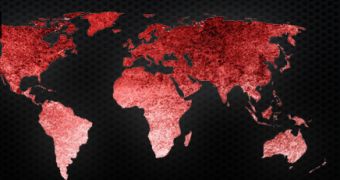In the past period, some rumors have been flying around about a “secure” operating system being designed by Kaspersky for industrial control systems. The rumor has been confirmed by the company’s CEO himself, Eugene Kaspersky.
Numerous governments have come to realize that much of their country’s critical infrastructure is exposed to cyberattacks. They’ve also come to realize that the effects of such attacks would be devastating.
That’s why large amounts of money are paid for securing the industrial control systems housed by companies in charge of critical infrastructure. Also, that’s the reason why the United States is desperate to issue a law that would regulate security policies and practices in this sector.
“Ideally, all ICS software would need to be rewritten, incorporating all the security technologies available and taking into account the new realities of cyber-attacks. Alas, such a colossal effort coupled with the huge investments that would be required in testing and fine-tuning would still not guarantee sufficiently stable operation of systems,” Kaspersky explained.
“But there is fully realizable alternative: a secure operating system, one onto which ICS can be installed, and which could be built into the existing infrastructure – controlling ‘healthy’ existing systems and guaranteeing the receipt of reliable data reports on the systems’ operation.”
For those wondering why an operating system developed by Kaspersky Labs would be more secure than one made by Microsoft or Apple, the answer is simple. The OS created by the security firm is focused on solving a “specific narrow task,” unlike regular systems which are developed for playing games, watching movies, surfing the web, and other similar tasks.
Furthermore, the secure OS Kaspersky is developing will not allow any “behind the scenes” activity. This means that third-party code or unauthorized applications cannot be executed.
For now, the company has only provided some minimal details on the project to ensure that their competitors will not steal their ideas. Also, some aspects will never become public in order to “ward off terrorist abuses.”

 14 DAY TRIAL //
14 DAY TRIAL //